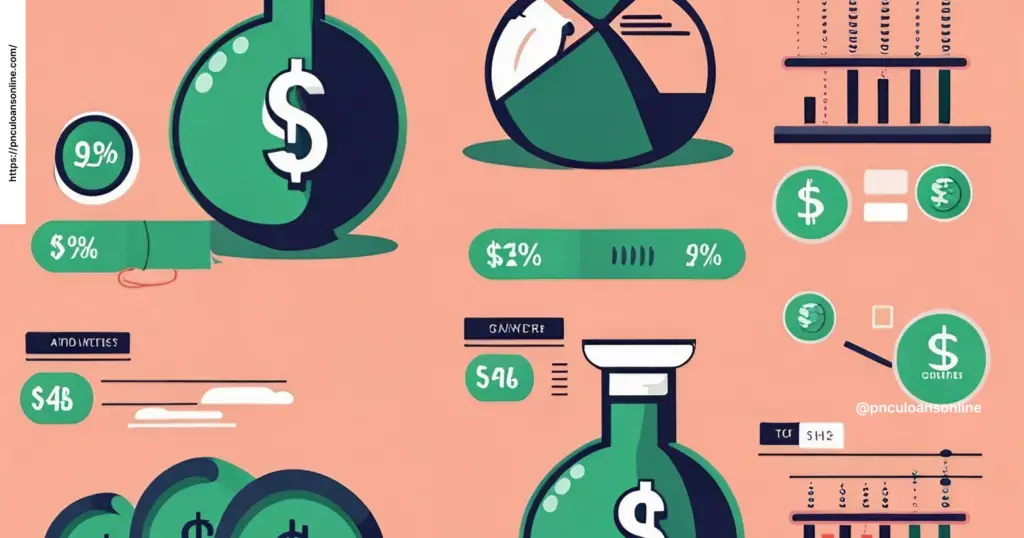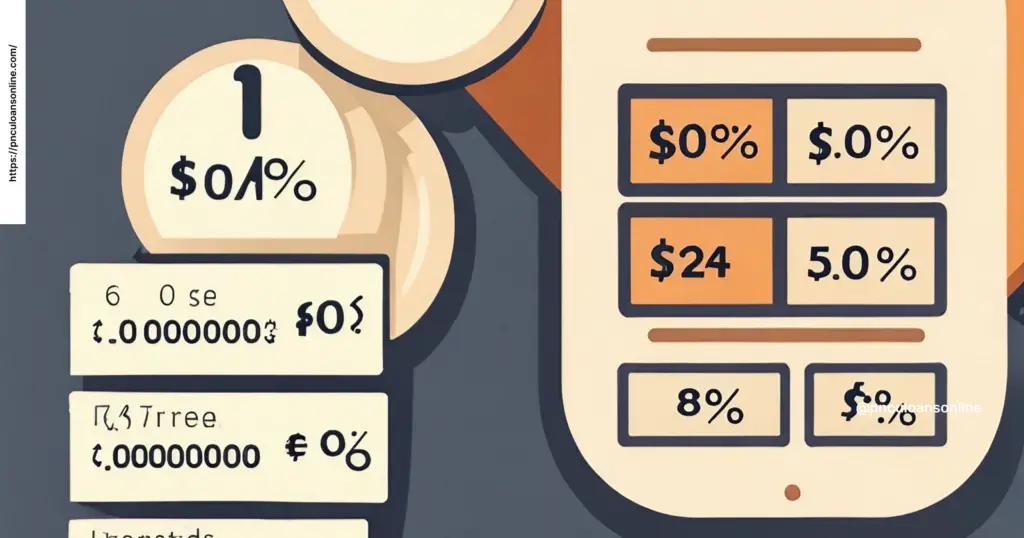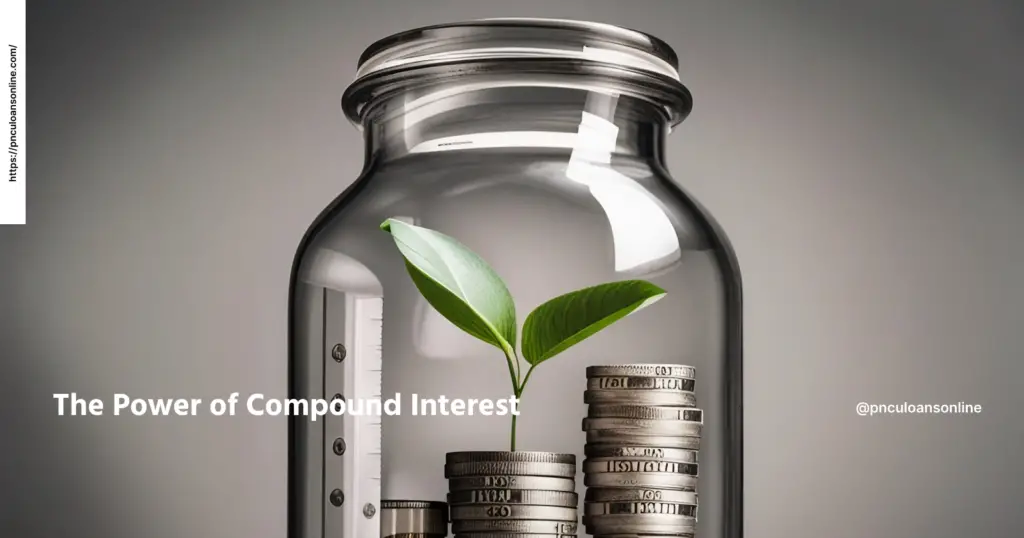Have you ever questioned how some people are able to amass significant fortune over time? Understanding and utilizing the power of compound interest is one of the main reasons for their success. Compound interest is a topic that will be discussed in this article along with its impressive effects on financial development and useful applications. So fasten your seatbelt and get ready to set out on a voyage that will alter how you view the development of long-term wealth.
The Fundamentals of Compound Interest
Let’s start with the fundamentals before delving into the details of compound interest. Compound interest is interest that is calculated using both the original sum of money and the interest that has accrued over time. In plainer terms, it refers to receiving interest on interest. Over time, this compounding effect can do wonders, turning even small savings into a sizeable sum.
Start Early and Use Time Magic
Time is your friend when it comes to compound interest. Your money has more time to grow the earlier you start investing. Take a look at an illustration of this idea now. Consider that from the time you are 25 until the time you are 35, you begin investing $1,000 year at an interest rate of 8%. After that, you cease. Your entire investment of $11,000 would have increased to almost $310,000 by the time you were 65. That demonstrates the strength of compound interest!

Leveraging the Influence of Consistent Donations
In addition to starting early, steady and regular payments are essential to maximise compound interest’s potential. Regular contributions to your investment account allow you to enhance the principal as well as ensure that compounding continues to flow into the account. Never forget that when given time to develop, even modest efforts can have a big impact.
The Difference Between Simple and Compound Interest
Let’s contrast compound interest with simple interest in order to better understand its influence. Simple interest does not account for any accumulated interest; it is computed purely on the principal amount. Contrarily, compound interest takes into account the interest that was accrued in earlier periods. The fundamental difference is that compound interest can increase wealth generation over time due to the compounding effect.
Useful Compound Interest Leverage Techniques
Now that we have a clear knowledge of compound interest, let’s look at some useful tactics for maximizing its influence.
Invest money in a retirement account
Investing in a retirement account, such as a 401(k) or an Individual Retirement Account (IRA), is one of the best methods to take advantage of compound interest. These accounts provide tax benefits and enable the tax-deferred or tax-free growth of your investments. You may take full use of compound interest to ensure a comfortable retirement by getting started early and continually contributing to your retirement account.
Ensure Investment Portfolio Diversity
Diversifying your investment portfolio is another essential component of taking advantage of compound interest. Investing in a variety of asset types, including stocks, bonds, and real estate, lowers risk and increases the possibility of long-term growth. By diversifying your investments, you may take advantage of the compounding effect on various investment vehicles and create a portfolio that is stable and well-balanced.
Reinvest Interest and Dividends
Reinvesting dividends from stocks and income from bonds can considerably accelerate your wealth building. Reinvesting speeds up the growth of your money by allowing dividends and interest to compound over time. With dividend reinvestment plans (DRIPs), which automatically reinvest dividends into more shares of stock, this method is very effective.
Use tax-advantaged accounts to your advantage
Retirement accounts aren’t the only tax-advantaged investment vehicles that can boost compound interest’s advantages. For instance, Health Savings Accounts (HSAs) have three tax advantages: eligible withdrawals are tax-free, profits grow tax-free, and donations are tax-deductible. Utilizing such accounts wisely will maximize compound interest while lowering your fees.
Compound Interest as a Tool for Motivation
In addition to its financial effects, compound interest can be an effective motivator. You might be motivated to make long-term financial decisions and give investing and saving top priority by realizing the exponential growth potential of compound interest. Your financial habits may be drastically changed once you realize that even modest investments can generate enormous riches.
Set attainable benchmarks and goals
Realistic milestones and goals must be established in order to maintain motivation throughout your wealth-building path. Your long-term goals should be broken down into more manageable, shorter-term goals. Celebrate each accomplishment as it represents a step closer to financial independence. Remember that compound interest works best over time, therefore on this route, patience and perseverance are essential traits.
Self-Education and Expert Consultation
It’s essential to educate yourself on personal finance and investing techniques if you want to comprehend the nuances of compound interest and how it applies to different situations. To increase your financial literacy, read books, go to seminars, and research reliable web sources. Consider working with a financial advisor who can help you navigate the process and offer advice that is specific to your situation.
Debt and Compound Interest: A Cautionary Note
Compound interest can be quite beneficial for expanding your investments, but it can also be detrimental if you end up in debt. High-interest obligations, like credit card debt or payday loans, can be made more difficult to manage by compound interest. Prioritizing paying off high-interest debts is essential to avoiding the detrimental compounding impact they can have on your overall financial situation.
Compound interest and generational wealth: The Ripple Effect
Compound interest can have an impact that lasts longer than a person’s lifespan, which is one of its most remarkable features. Compound interest can be utilized to your advantage, and by doing so, you can leave a legacy of wealth to your children, grandchildren, and even great-grandchildren.
Imagine the following case: Throughout your life, you faithfully invest a portion of your salary, letting compound interest do its job. By the time you pass away, your children will have a sizable nest egg. By making sensible investments and transferring the earned fortune to their own offspring, they carry on the legacy. Each succeeding generation reaps the rewards of the compounding effect and builds on the foundation laid by the generation before them in this cycle.
It is impossible to exaggerate the impact of compound interest in creating wealth for future generations. It has the potential to end the cycle of financial hardship and provide upcoming generations more chances to succeed. Your family will be better equipped to make good financial decisions and safeguard their financial futures if you foster a culture of financial literacy, responsible investing, and long-term thinking inside your household.
Overcoming Barriers to Enabling Everyone to Access Compound Interest
Although compound interest is a tremendous weapon, it’s critical to remove the obstacles that hinder many people from taking use of its potential. People may find it difficult to take advantage of compound interest due to economic inequalities, a lack of financial education, and restricted access to investment possibilities.
We must work to advance financial inclusion and offer tools to people from various backgrounds if we are to make compound interest more widely available to everybody. This entails promoting financial literacy lessons in classrooms, giving inexpensive investment options, and bridging the knowledge divide by supplying simple-to-understand educational resources.
In addition, it’s critical to address systemic problems that fuel wealth disparity. We can level the playing field and ensure that compound interest becomes a vehicle for social and economic development by addressing income inequality and providing underprivileged people with possibilities for wealth building.
The Compound Effect in Life: Compound Interest Beyond Finances
While we have mostly concentrated on the financial effects of compound interest, its fundamental idea of exponential growth has applications outside of the financial world. Compounding can be used to make big changes in a variety of spheres of life over time.

Take personal development as an example. Similar to how consistent little money donations can add up to significant riches, small actions, habits, and learning opportunities can add up to extraordinary personal growth. Even though daily reading, regular exercise, and learning new skills may initially seem trivial, they can eventually result in tremendous success and self-improvement.
Similar to this, the compound effect affects relationships. Strong, lasting connections can develop via little acts of kindness, frequent communication, and putting time and effort into caring for relationships.
Even societal transformation can be seen as the result of the compound effect. Movements that begin with a small group of ardent supporters can expand rapidly as more people join in, ushering in a wave of change and having a profound effect on the lives of huge numbers of people.
Conclusion:
When it comes to generating long-term wealth, compound interest is incredibly powerful. You can take advantage of this power by comprehending its principles and putting them into practice. Don’t forget to get started early, contribute consistently, and take advantage of tax-advantaged accounts. Maintain your drive, make sensible goals, and keep learning about personal finance. You may realize your financial potential and lay the route for a wealthy future when compound interest is on your side.
FAQs:
The definition of compound interest?
The interest that is calculated on both the original sum of money and the interest that has accrued over the course of prior periods is known as compound interest. It simply means getting interest on your interest, to put it simply. Your savings and investments could rise exponentially over time as a result of this compounding impact.
What separates compound interest from simple interest?
Simple interest does not account for any accumulated interest; it is computed purely on the principal amount. Contrarily, compound interest takes into account the interest that was accrued in earlier periods. The key distinction is that compound interest can increase wealth generation over time due to the compounding effect.
How can I benefit from compound interest?
You can use compound interest to your advantage by taking the following useful actions:
begin early Your money has more time to grow the earlier you start investing.
Make consistent contributions: Compounding is ensured by consistently increasing your deposits.
Pick the appropriate investment vehicles: Choose investments with compound interest, such as stocks, bonds, mutual funds, or savings accounts.
Reinvest earnings: To take advantage of the compounding impact, reinvest interest generated rather than withdrawing it.
Keep calm: Keep in mind that compound interest works best when given time to compound, so avoid taking early withdrawals from your investments.
How may compound interest help my retirement savings?
A sizable retirement fund can be created via compound interest, which is a potent tool. You can benefit from the compounding effect over several decades by starting early and making regular contributions to retirement accounts like 401(k)s or IRAs. By the time you retire, this can provide a sizeable wealth accumulation, giving you a more comfortable and secure retirement.
Can compound interest aid in debt repayment?
Compound interest can be used to your benefit when paying off debt, even though it is normally connected with savings and investments. You can lower the principle balance of your obligations and lower the interest that accrues over time by consistently making extra payments toward them. By reducing the amount of interest that compounds, you can pay off your debts more quickly.

